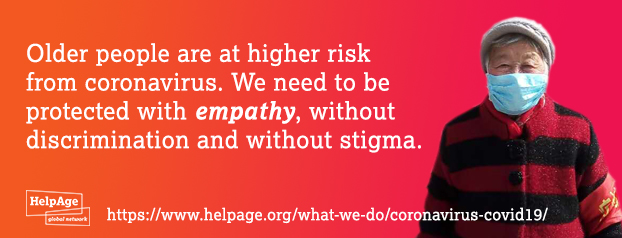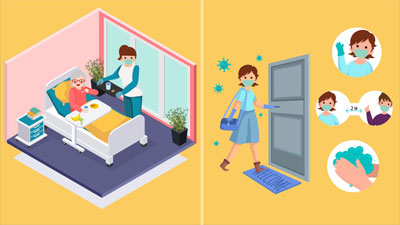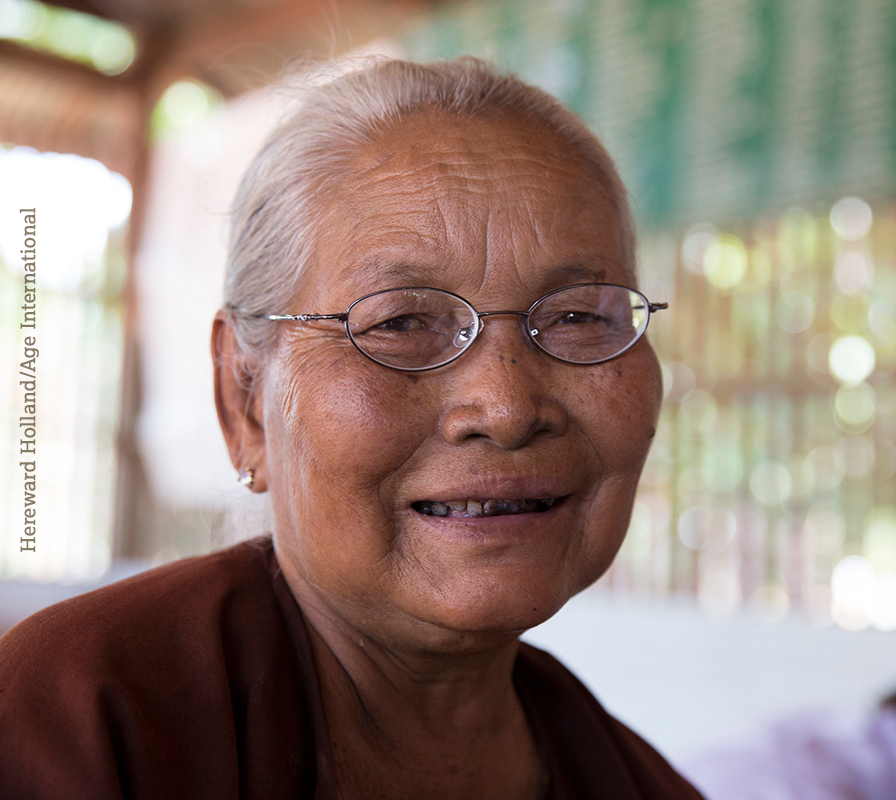Protecting older people during the coronavirus (COVID-19) pandemic
The Coronavirus disease 2019 or COVID-19 is a new infectious disease that causes respiratory infection. The outbreak of this recently discovered coronavirus began in Wuhan, China, in December 2019.
It has been characterised by the WHO as “a controllable pandemic” which all countries need to prepare for and respond to. This presents a challenge for low- and middle-income countries with weaker health and care systems, as well as in countries hosting populations of refugees and displaced people living in camps.
COVID-19 presents specific risks for older people. Initial research in China based on over 44,000 cases of COVID-19, showed a mortality rate of 2.3 per cent for the general population, rising to 8 per cent in those aged 70-79 and nearly 15 per cent in those 80 and over.

A health crisis can isolate older people and the risk of this happening is far higher in countries with less developed health systems where access to medical services and other forms of care and support can be challenging.
This pandemic can be suppressed but only in so far as people act in solidarity with each other and take steps to protect and care for those most at risk.
Regional initiative
HelpAge International and partner organisations are producing bimonthly briefs to monitor impacts of COVID-19 on older people in the Asia Pacific region.
Translations
HelpAge International has six key messages for decisionmakers at global and national levels:
1. Equality and non-discrimination
Older people have the right to health including access to information, care and medical services on an equal basis with everyone else. The risk of discrimination in accessing medical services is one that should be monitored for all high-risk groups, including older people.
2. Preparedness and planning
Preparedness and planning should take account of the additional risks to older people. Countries are advised to act in line WHO’s global Strategic Preparedness and Response Plan which outlines how to implement public health measures to manage COVID-19.
3. Public information – reaching older people
Regular communications with the public and at-risk populations is one of the most important steps to help prevent infections, save lives and minimise adverse outcomes. Information must be provided in multiple formats and local languages to address the barriers which older people often face, related to literacy, language and disability.
4. Access and support
Specific measures to support older people must be implemented during an outbreak. These include access to alcohol-based hand rubs where there is poor access to water; access to social support and essential supplies for older people in quarantine or self-isolating; and a proportionate and non-discriminatory approach to restrictions on freedom of movement. Communities must work together to ensure everyone’s wellbeing during the response.
5. Conflict and displacement settings
Contingency planning by governments and humanitarian agencies must address the high risks faced by older refugees and displaced people and provide for access to health treatment and care, including access to national health systems and hospitals, regardless of legal status.
6. Development and humanitarian funding
Older people are frequently overlooked in development and humanitarian strategy development and funding. In the context of COVID-19 and the risk posed to older people, they must be explicitly identified and considered in funding applications and decisions at all levels and in all settings.

Stay updated on what HelpAge is doing on COVID-19 response, visit https://www.helpage.org/what-we-do/coronavirus-covid19/
HelpAge has produced a wide range of useful resources ranging from the latest technical guidance, communications resources and stories.
Guidances and advices

Other resources
For more information, please get in touch with our media focal point at wajee@helpageasia.org







